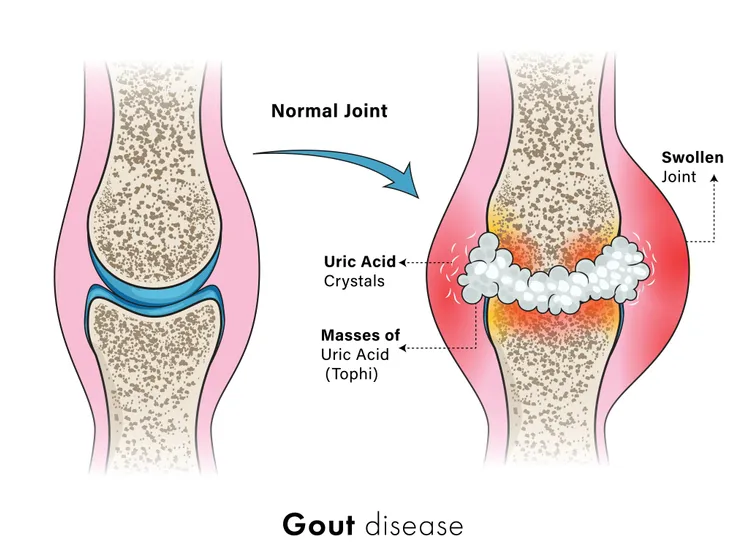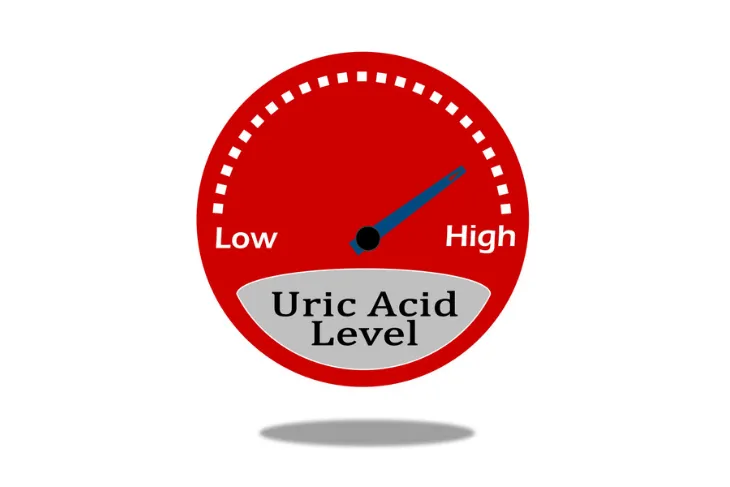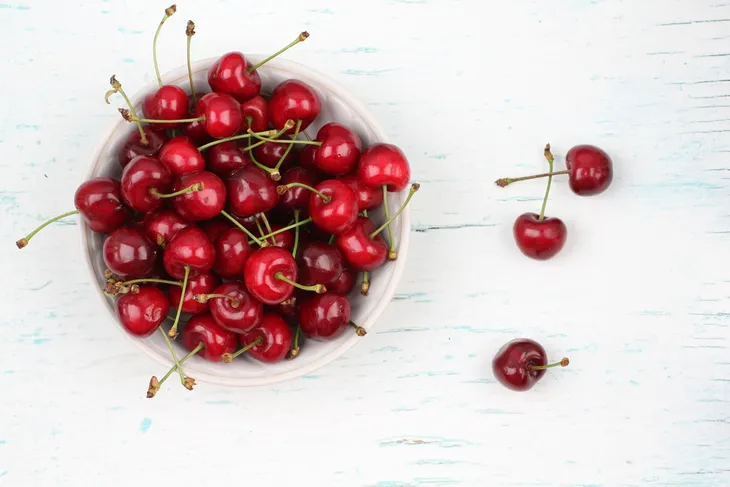Anyone who has experienced a gout attack knows it can be excruciating, causing red, hot, painful, and swollen joints. Gout, a form of arthritis, typically affects the joints in the feet, ankles, or knees. Around half the time it strikes in the big toe, which can make it impossible to wear shoes. Even the light fabric of a sock can be aggravating!
Because the agony of a gout attack can be so intense, sufferers will often try anything to get relief, leading to a spike in “gout home cures.” While there are a few effective home cures for gout, prescription drugs remain the gold standard for treating gout, both during an acute attack and in the long run to prevent gout attacks. That being said, there are a few effective natural home treatments for gout attacks that can be used in addition to pharmaceuticals. Let’s take a look!
Gout Attacks Explained
Gout is caused by the crystallization of uric acid, a waste product produced when purines — naturally occurring chemicals found in foods like organ meats, asparagus, anchovies, herring, and mushrooms — are broken down.
These crystals are interpreted by the body as foreign intruders, and white blood cells fight them. As a result, the white cells generate cytokines, which are inflammatory substances that are released into the joint fluid. More white cells are attracted by the cytokines, and so on.
According to the Mayo Clinic, about 20-percent of individuals have high uric acid levels. However, almost two-thirds of patients with elevated uric acid levels have no symptoms.
Tips to Reduce Uric Acid Levels Naturally
Now that we have a basic understanding of uric acid and what causes gout attacks, let’s take a look at tips to lower uric acid levels naturally.
Make Sure You Drink Lots of Water
A person suffering from gout may experience significant swelling and inflammation. Drinking more water is a great way to reduce swelling as it triggers the kidneys to release excess fluid.
If you drink enough water to urinate every 2 to 3-hours or so, you’re adequately hydrated. While water is your best choice, other clear fluids like broths and herbal teas can be excellent alternatives.
Limit Your Alcohol Intake
Alcohol is regularly cited as a major risk factor for gout because of its high purine content. Beer contains the highest level of purines while wine has the least. However, any alcoholic beverage can cause gout symptoms in people who are predisposed to the disease.
When you drink alcohol, your kidneys expel alcohol instead of uric acid. As a result, uric acid levels may build to the point that a gout attack might occur within a day or two.
Avoid Sugary Drinks
Soft drinks and juices labeled as fresh fruit but containing less than 50-percent real fruit juice are more likely to include excessive levels of sugar or high-fructose corn syrup. According to the results of a recent survey, these components are known to raise uric acid levels. Your body makes purines, which then form uric acid as it breaks down the fructose (a natural sugar included in these drinks).
Fructose from refined sugar in juice or other foods is absorbed more quickly than sugar from foods with a natural constitution that requires digestion. The quicker absorption of refined sugars raises blood sugar levels while simultaneously increasing uric acid levels.
Shed That Extra Weight
Those extra pounds you’ve been carrying around are most likely raising your uric acid levels. Studies show that fat cells are more likely to produce more uric acid than muscle cells. In addition, your extra weight is making it harder for your kidneys to expel uric acid.
That being said, losing too much weight in a short amount of time can stress out your body and affect your uric acid levels too.
How to Lose Weight With Gout
When it comes to losing weight for gout prevention, slow and steady wins the race. Don’t pay attention to fad diets or extreme dieting.
Regular exercise and a healthy diet will go a long way to mitigating the risk of those nightmarish gout attacks from happening again.
Eat Cherries
A recent study showed that consumption of cherries over a two-day period cut the risk of gout by 35-percent. The study was conducted with individuals who were previously diagnosed with gout.
Cherries have a high concentration of anthocyanins, which are anti-inflammatory compounds. The researchers discovered that people who ate whole cherries or cherry juice, as well as those who took cherry extract supplements, experienced symptom relief.
The Benefits of Cherries and Gout Medication
The same study showed that eating cherries along with gout medication could reduce the risk of a gout flare-up by up to 75-percent!
Not only are cherries and cherry juice delicious, but they are also widely available in supermarkets across the country. Cherry extract supplements are also available in health food stores and online.
Drink Coffee
Most people start their day with a nice hot cup of coffee, but now you can also drink it to help reduce your uric acid levels. Chlorogenic acid, an antioxidant found in coffee, can help decrease uric acid levels and even prevent gout.
Studies have shown that drinking 4 to 5-cups of coffee a day cuts their risk of gout by up to 40-percent. While this amount of coffee is deemed safe, you may have other potential side effects like headaches, insomnia, and the jitters to contend with.
Limit Purine-Rich Foods
Overloading your body with purines can cause an imbalance in your uric acid levels that your kidneys won’t be able to metabolize efficiently. Most foods we consume contain purines, however, animal purines found in meat and seafood can have a significant impact on your uric acid levels.
Whether you’re a meat-lover or a seafood fanatic this can be quite a dilemma. However, the point of a gout-friendly diet is to keep your uric acid levels in check. You can still eat red meat and seafood, just don’t go overboard.
The following foods are known for containing elevated levels of purine including organ meat such as liver and kidneys, shellfish and oily fish (like tuna and anchovies), and vegetables like asparagus and mushrooms.
The Takeaway
Flare-ups of gout can be excruciatingly painful and demanding. Luckily, treatments, including home remedies, can help alleviate symptoms and avoid flare-ups in the future. Maintaining a healthy weight and exercising regularly might also aid in the management of a person’s disease.
If a person’s flare-ups do not improve after 48-hours, they should contact their doctor to evaluate if they require additional medical treatment.















